Emergency HVAC Milnrow
Top Emergency HVAC in Milnrow
Receive multiple Emergency Furnace Repair quotes for your project today! Compare profiles, reviews, accreditations, portfolio, etc... and choose the best service.

Cardon Energy
Modwen Road, Unit 17, Watersedge Business Park, Salford, M5 3EZ, GBCardon Energy is a specialist energy contractor for construction projects, with a focus on Mechanical and Electrical (M&E) solutions. Our M&E experience includes heating, air-conditioning, lighting, ventilation, plumbing, power, and security. Our sister company Cardon Property & Construction enables us to provide full project delivery from large-scale electrical installations to LED Lighting and small electrical works. As well as Electrical and Mechanical specialists, Cardon Energy also provides low carbon energy solutions such as hydrogen energy installations, Electric Vehicle (EV) Charging, and Solar power. We use innovative products, liaising closely with our supply chain, ensuring the most efficient and cost-effective products are utilised. With an established reputation within the Building Services industry, our support and backing enable us to deliver results, giving you complete peace of mind. Based in Manchester, we have worked on key projects predominately through the North West, but our customer base is nationwide working on flagship projects such as London’s first hydrogen bus refuelling station, producing 100% green clean fuel. We have worked in both the private and public sectors and our experience ranges from education to residential projects with quality and low carbon solutions in mind. Whether it is maintenance, a new installation, or emergency repairs, we have the expertise to deliver your projects on time and on budget with a service that is second to none. Our expert team of engineers will be on hand to guide you through any project, big or small, and provide you with the best energy solution to fuel your projects. Cost-Effective Mechanical & Electrical Solutions Flexible fuel products Safe to produce and store Greener than fossil fuel Part of the government plan for ‘net zero’ Lower carbon emissions by 2050
- Services
- Why Us?
- Gallery
Get Quote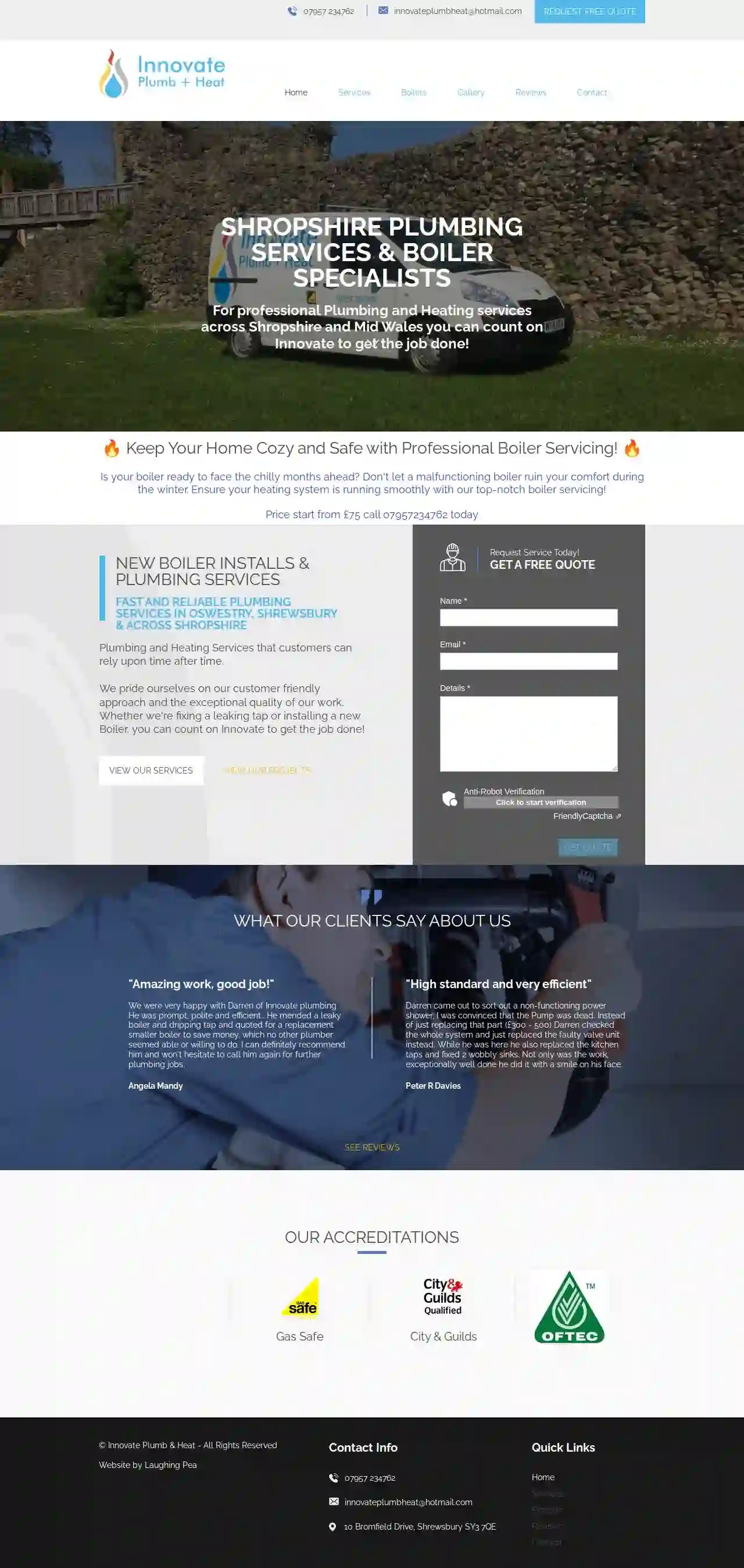
Innovate Plumb + Heat LTD
4.841 reviews10 Bromfield Drive, Shrewsbury, SY3 7QE, GBInnovate Plumb & Heat is a professional plumbing and heating services company based in Shropshire, UK. With many years of experience, we provide a wide range of services including boiler installations, central heating repairs, boiler servicing, and plumbing services. Our team of expert plumbers are Gas Safe registered, fully qualified, and courteous, ensuring that our clients receive the highest standard of workmanship. We pride ourselves on our customer-friendly approach and exceptional quality of work. Whether you need a new boiler installed, a leaky tap fixed, or a radiator replaced, we are here to help. Contact us today to request a free quote and experience the Innovate Plumb & Heat difference.
- Services
- Why Us?
- Accreditations
- Testimonials
- Gallery
Get Quote
Harry Taylor of Ashton Ltd
44 reviewsGuide Bridge Mill, South Street, Guide Bridge MillSouth Street, Ashton - under - Lyne, OL7 0HU, GBHarry Taylor of Ashton Ltd is a leading provider of industrial heating, cooling, and energy efficiency solutions. With a strong commitment to customer satisfaction and environmental responsibility, we offer a comprehensive range of services, including installation, maintenance, and repair. Our team of experienced engineers is dedicated to providing tailored solutions to meet the unique needs of each client. We serve a variety of industries, including manufacturing, warehousing, and leisure facilities. We are proud to be a Carbon Trust accredited company, demonstrating our commitment to reducing carbon emissions and promoting sustainable practices.
- Services
- Why Us?
- Accreditations
- Gallery
Get Quote
Heatingcare.co.uk
3.73 reviews3 Squirrels Court, Buxton, SK17 7AN, GBWe install central heating in Manchester, Warrington, Lancashire, Staffs and Cheshire. We specialise in fitting Worcester Bosch Combi boilers with high quality installation. We fit hundreds of combi boilers and can give you a fixed price quote. We carry out a free survey. We also specialise in combi repairs for Worcester Bosch and other major brands. Your combi boiler installation, service and repair is carried by qualified Gas safe engineers.
- Services
- Why Us?
- Accreditations
- Gallery
Get Quote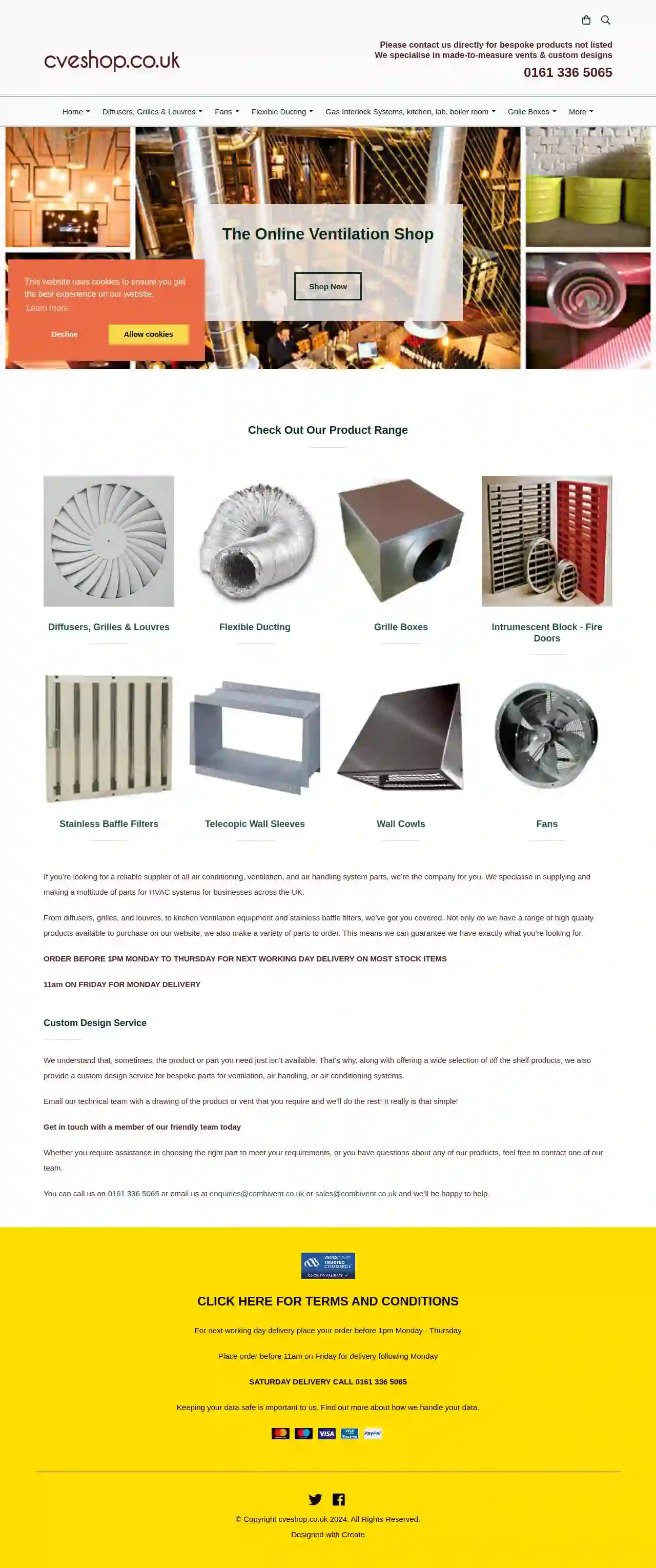
CVE Shop
51 reviewsUnit 4, Catherine Street West, Manchester, M34 3SY, GBCVE Shop is a leading supplier of ventilation products, established in 2011 in Manchester. We offer a wide range of products, including louvres, grilles, ducting, and baffle filters. Our Technical Sales Team can design and supply a complete range of Ventilation Equipment to meet your requirements at very competitive prices. We specialise in made-to-measure vents with custom designs, which enables us to always provide a bespoke product to meet your exact needs. Our specialist and friendly team are ready to help you find one of our high-quality products. We believe in providing a fast and efficient service, and offer next day delivery on most standard sizes. Our aim is for customer satisfaction, which can only be achieved by offering a personal service, quality workmanship, and dependable products.
- Services
- Why Us?
- Our Team
- Gallery
Get Quote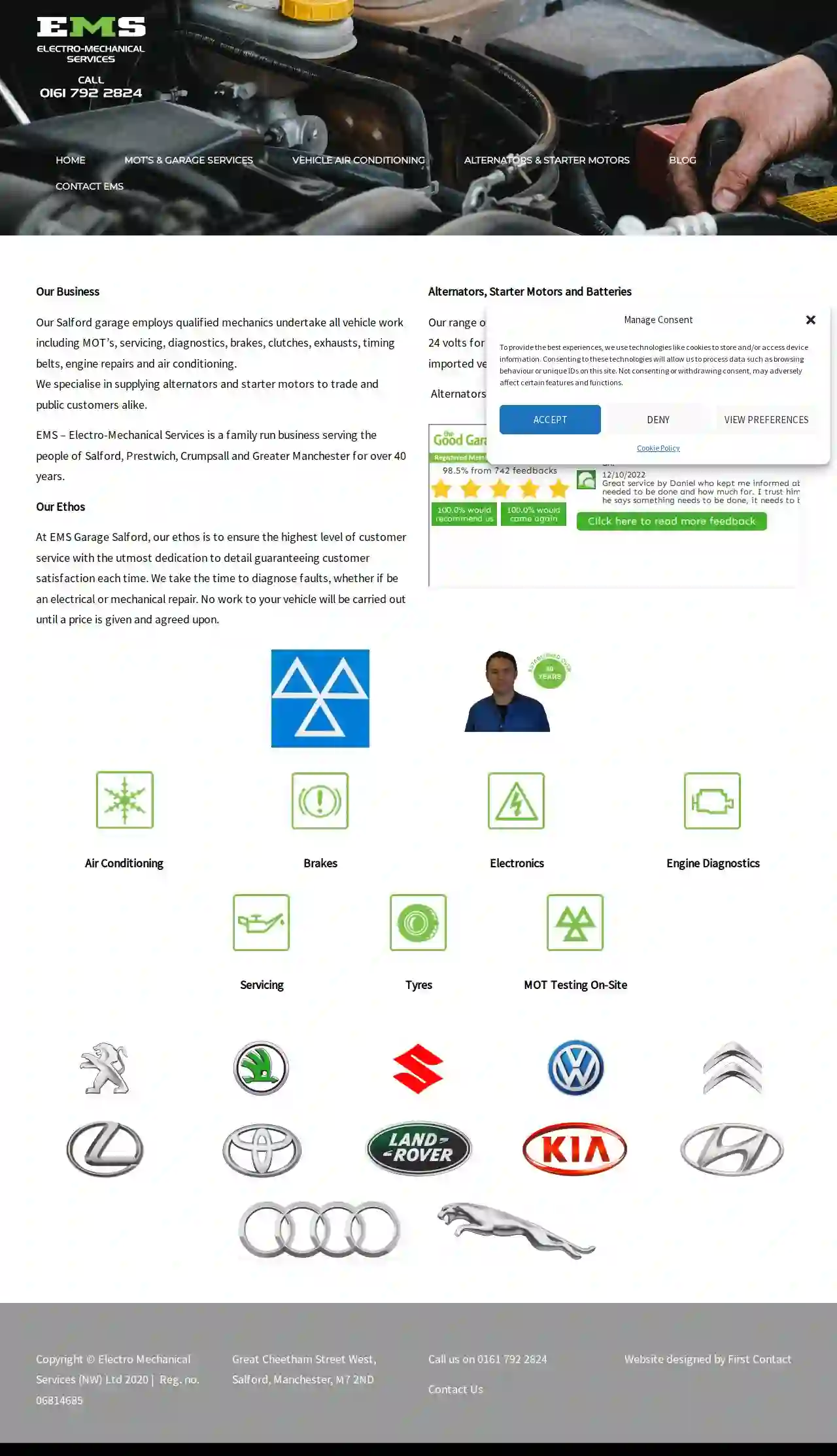
Electro-Mechanical Services
4.358 reviewsSalford, Manchester, Great Cheetham Street West, M7 2ND, GBEMS Garage Salford is a family run business serving the people of Salford, Prestwich, Crumpsall and Greater Manchester for over 40 years. Our ethos is to ensure the highest level of customer service with the utmost dedication to detail guaranteeing customer satisfaction each time. We take the time to diagnose faults, whether it be an electrical or mechanical repair. No work to your vehicle will be carried out until a price is given and agreed upon. Our range of alternators and starter motors is extensive, providing 12 and 24 volts for domestic, light commercial, fork lift trucks, marine and imported vehicles. All with a 12 month guarantee, unless stated otherwise. We also offer air conditioning, brakes, electronics, engine diagnostics, servicing, tyres, and MOT testing on-site.
- Services
- Why Us?
- Gallery
Get Quote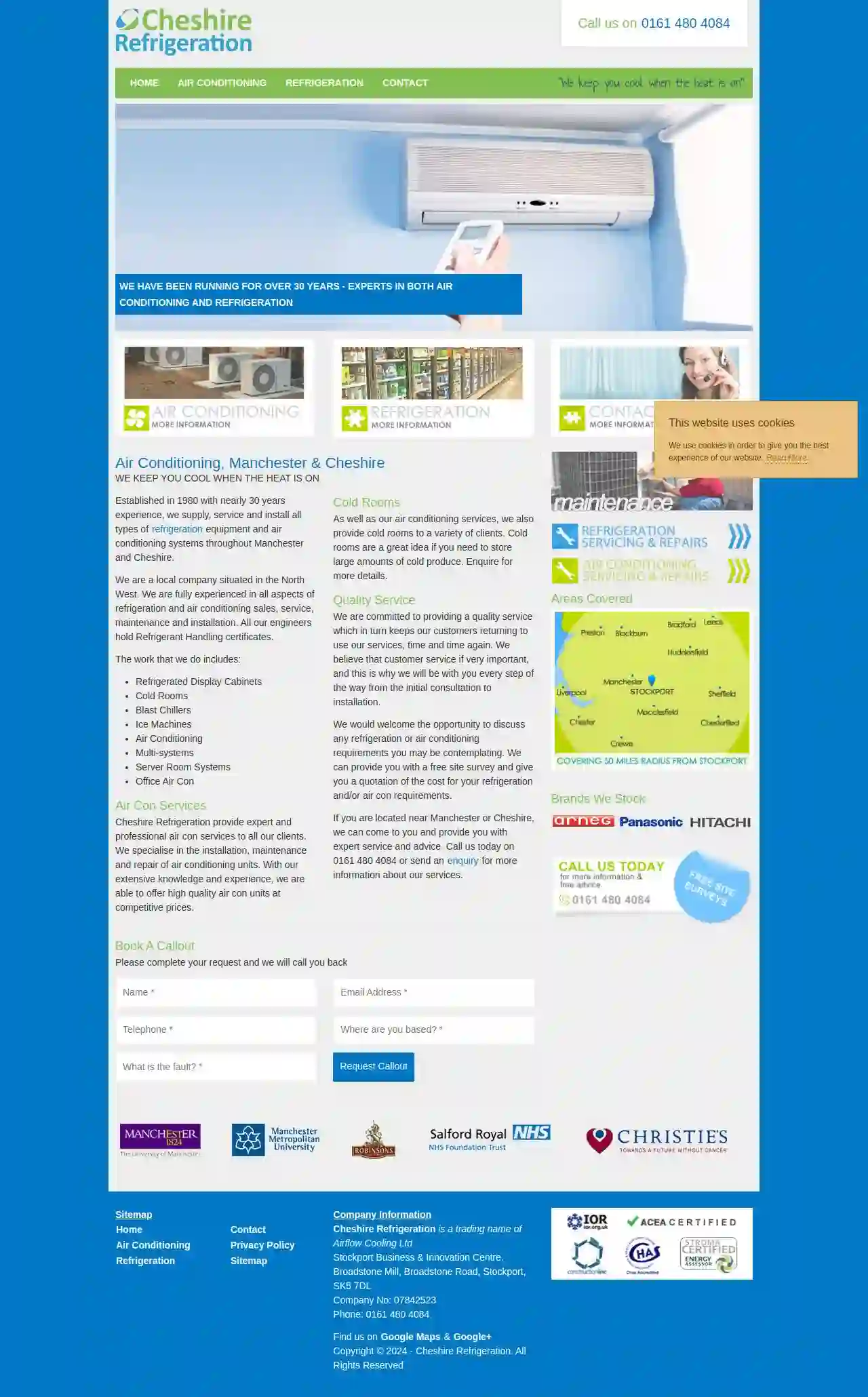
Cheshire Refrigeration
3.45 reviewsStockport Business & Innovation Centre, Broadstone Mill, Broadstone Road, Stockport, SK5 7DL, GBEstablished in 1980 with nearly 30 years experience, we supply, service and install all types of refrigeration equipment and air conditioning systems throughout Manchester and Cheshire. We are a local company situated in the North West. We are fully experienced in all aspects of refrigeration and air conditioning sales, service, maintenance and installation. All our engineers hold Refrigerant Handling certificates. The work that we do includes: Refrigerated Display Cabinets Cold Rooms Blast Chillers Ice Machines Air Conditioning Multi-systems Server Room Systems Office Air Con Air Con Services Cheshire Refrigeration provide expert and professional air con services to all our clients. We specialise in the installation, maintenance and repair of air conditioning units. With our extensive knowledge and experience, we are able to offer high quality air con units at competitive prices. As well as our air conditioning services, we also provide cold rooms to a variety of clients. Cold rooms are a great idea if you need to store large amounts of cold produce. Enquire for more details. Quality Service We are committed to providing a quality service which in turn keeps our customers returning to use our services, time and time again. We believe that customer service if very important, and this is why we will be with you every step of the way from the initial consultation to installation. We would welcome the opportunity to discuss any refrigeration or air conditioning requirements you may be contemplating. We can provide you with a free site survey and give you a quotation of the cost for your refrigeration and/or air con requirements. If you are located near Manchester or Cheshire, we can come to you and provide you with expert service and advice. Call us today on 0161 480 4084 or send an enquiry for more information about our services.
- Services
- Why Us?
- Gallery
Get Quote
Cool Car - South Manchester
539 reviewsManchester, GBEstablished for over 35 years we are the probably the oldest and most experienced car air conditioning specialists in the UK. We can recharge, regas, service and repair your car AC at home or place of work.
- Services
- Why Us?
- Our Team
- Testimonials
- Gallery
Get Quote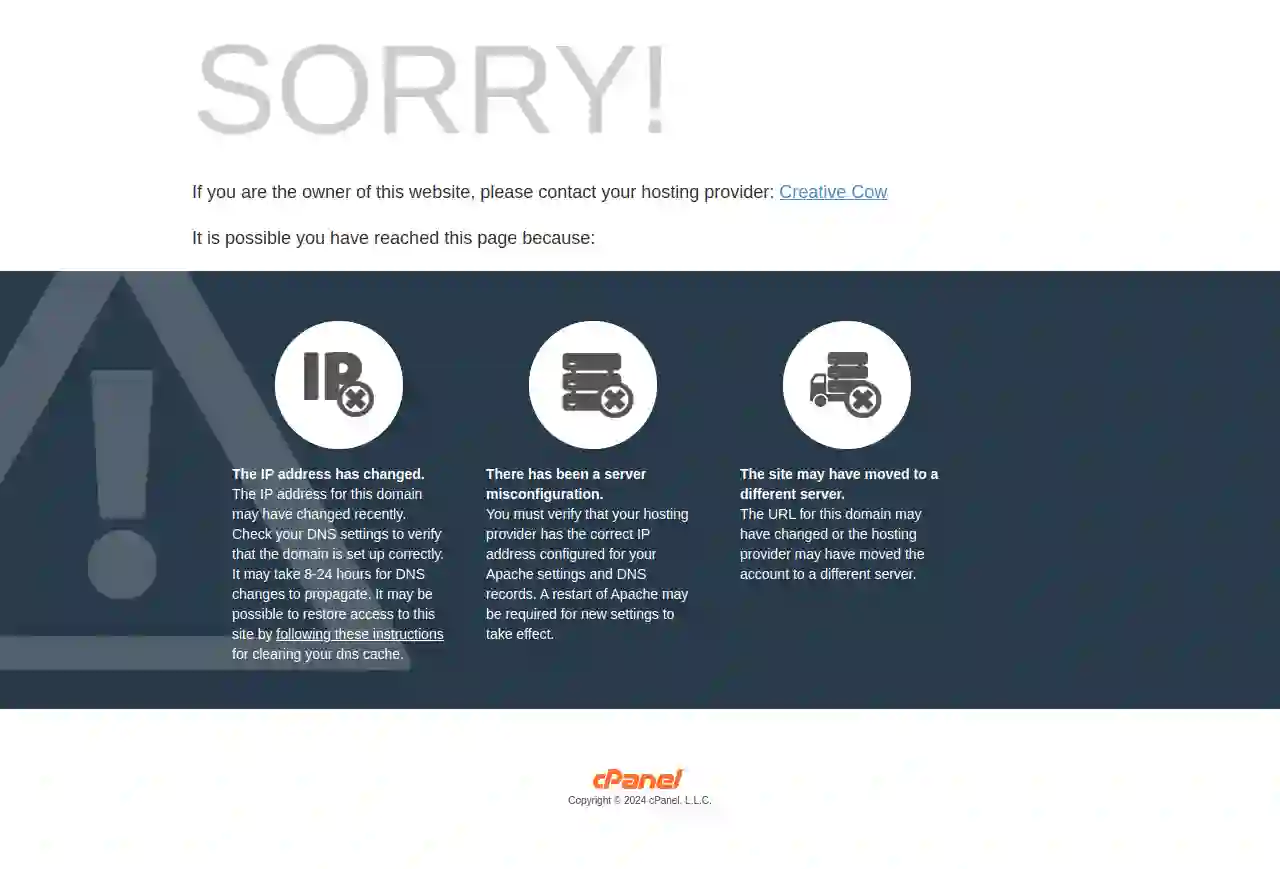
Smart Controls Group
10000 Santa Monica Blvd, Suite 200, Los Angeles, 90210, GBSmart Controls Group is a leading provider of innovative control solutions for a wide range of industries. With a team of experienced engineers and technicians, we specialize in designing, developing, and implementing customized control systems that meet the unique needs of our clients. Our commitment to excellence and customer satisfaction has earned us a reputation as a trusted partner in the control systems industry. We offer a comprehensive range of services, including: Control System Design and Engineering Automation System Integration Process Control Solutions SCADA Systems Industrial Networking Remote Monitoring and Control Our team of experts has a deep understanding of the latest control technologies and industry best practices. We work closely with our clients to understand their specific requirements and develop customized solutions that optimize performance, efficiency, and safety. Smart Controls Group is committed to providing our clients with the highest quality products and services. We are dedicated to exceeding expectations and building long-term relationships based on trust and reliability.
- Services
- Why Us?
Get Quote
HVAC projects Ltd
51 reviewsManchester, GBWelcome to HVAC Projects Ltd. With 30 years’ experience in the air conditioning services industry, we’ve got the expertise and knowledge required to provide you with the best possible service. We pride ourselves on going the extra mile for our customers every single time, from the smallest of jobs to large scale projects throughout the Northwest, greater Manchester and the UK. We operate across a variety of sectors and have worked with the NHS, local councils, commercial offices, pharmaceuticals, security cleared sites, leisure, retail, pubs, domestic, restaurants and industrial customers to provide the highest quality air conditioning installation, mechanical services, facilities management, refrigeration services, ventilation installation and HVAC Project Management services. Our Air Conditioning Services include the supply and install all major equipment including Daikin, Mitsubishi, Toshiba, Panasonic, Sanyo, LG, Fujitsu etc and we can carry out Labour Only air conditioning installations throughout Stockport, Cheshire, Greater Manchester & the Northwest, we are also happy to travel if the client needs our support. We specialise in working with mechanical, commercial & facilities management companies needing installation PPM planned maintenance making sure your needs are met. We offer the above for all our air conditioning refrigeration ventilation services.
- Services
- Why Us?
- Gallery
Get Quote
Over 12,692+ HVAC Businesses on our platform
Our HVAC pros operate in Milnrow & surroundings!
HVACCompaniesHub has curated and vetted Top HVAC Companies near Milnrow. Find a reliable contractor today.
Frequently Asked Questions About Emergency HVAC Services
- Control Humidity: Keep indoor humidity levels between 30% and 50%.
- Regularly Change Air Filters: Change your air filters at least every three months.
- Clean Drip Pans and Condensate Drains: Regularly inspect and clean your AC unit's drip pans and condensate drains to prevent standing water.
- Ensure Proper Ventilation: Adequate ventilation helps to control humidity levels.
- Schedule Professional Duct Cleaning: Have your ducts professionally cleaned every few years to improve indoor air quality.
What is a dehumidifier, and do I need one?
How can I prevent future HVAC emergencies?
What is a humidifier, and should I use one with my HVAC system?
How can I prevent mold in my HVAC system?
What is a dehumidifier, and do I need one?
How can I prevent future HVAC emergencies?
What is a humidifier, and should I use one with my HVAC system?
How can I prevent mold in my HVAC system?
- Control Humidity: Keep indoor humidity levels between 30% and 50%.
- Regularly Change Air Filters: Change your air filters frequently.
- Clean Drip Pans and Condensate Drains: Regularly inspect and clean your AC unit's drip pans and condensate drains to prevent standing water.
- Ensure Proper Ventilation: Adequate ventilation helps to reduce moisture buildup.
- Schedule Professional Duct Cleaning: Consider regular air duct cleaning to improve indoor air quality.